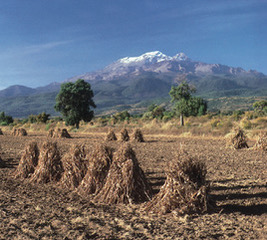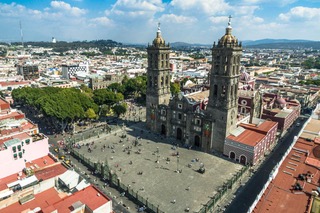EXTENDED DEADLINES TO JANUARY 20, 2020
Websites: https://cba.lmu.edu/subsistencemarketplaces/ & - https://cba.lmu.edu/immersionconference/
The Eighth Subsistence Marketplaces Conference:
Symbiotic Academic-Social Enterprise in Subsistence Marketplaces
https://cba.lmu.edu/subsistencemarketplaces/
May 30-June 1, 2020 | Loyola Marymount University, Los Angeles
Immediately Following the Marketing and Public Policy Conference at the same location, May 28-30 - https://www.ama.org/events/conference/2020-ama-marketing-and-public-policy-conference/
Immediately Preceding the Third Subsistence Marketplaces Bottom-Up Immersion Conference in Puebla, Mexico, June 3-6 - https://cba.lmu.edu/immersionconference/
Conference Co-Chairs
Ashok K. Lalwani, [log in to unmask],
Indiana University, Bloomington
Laurel Steinfield, [log in to unmask],
Bentley University, Boston
Nita Umashankar, [log in to unmask],
San Diego State University
Conference Director
Madhu Viswanathan
[log in to unmask]; [log in to unmask]
Loyola Marymount University
Track Chairs and Topics In Progress (Tracks are intended to emphasize specific areas; Specification of tracks by submitting authors is optional)
Andres Barrios, Universidad De Los Andes
Myla Bui, Loyola Marymount University
John Clarke, Tulane University
Jason D’Mello, Loyola Marymount University
Ronald Duncan, University of Illinois, Urbana-Champaign
Ashley Goreczny, Iowa State University
Hussein Faruque Aly, Lancaster University, UK
Samanthika Gallage, Staffordshire University, UK
Alexander Glosenberg, Loyola Marymount University
Norma Scagnoli, University of Illinois Urbana-Champaign
Jacob Park, Rutgers University
Tejinder Sharma, Kurukshetra University, India
Saroja Subrahmanyan, Saint Mary’s College of CA
Steven Rayburn, Texas State University
Shikha Upadhyaya, California State University
Jessie J. Wang, Miami University
Climate Change, Environmental Sustainability and Subsistence Marketplaces – Jacob Park and Nita Umashankar
(Challenges and pathways at the intersection of environmental issues, poverty, and marketplaces).
Education About Subsistence Marketplaces –Norma Scagnoli and Tejinder Sharma
Entrepreneurship in Subsistence Marketplaces – Jason D’Mello and Steven Rayburn
Positive Outcomes in Subsistence Marketplaces – Hussein Faruque Aly and Ashley Goreczny (Adaption, exchange,
and positive outcomes among entrepreneurs, consumers, producers, social enterprises, government actors, NGOs and other stakeholders.)
Poverty Amidst Plenty- Saroja Subrahmanyan and Shikha Upadhyaya (Different facets of poverty, income
inequality and social exclusion (e.g. homelessness and lack of access to basic needs) in developed countries).
Social Entrepreneurship – Alex Glosenberg and Leticia Ivonne López Villarreal
Youth as Change Agents in Subsistence Marketplaces – Andres Barrios and Samanthika Gallage
Youth in subsistence marketplaces acting as catalyst around the globe on environmental issues, poverty.
Brands and Branding in Subsistence Marketplaces – John Clarke and Jessie J. Wang (How do consumers in
subsistence marketplaces view brands and make decisions based on branding? How can branding being effective in subsistence marketplaces? How do subsistence entrepreneurs create the equivalent of brands and branding?)
Emotional and Mental Well-Being in Subsistence Marketplaces – Myla Bui and Ron Duncan
Call for Papers
Subsistence marketplaces consist of consumer and entrepreneur communities living at a range of low income levels, and are concentrated in developing countries and regions such as Brazil, India, China, Vietnam, and Sub-Saharan
Africa. Additionally, many individuals in developed countries also live in subsistence. The subsistence marketplaces stream of work pioneered at the University of Illinois, Urbana-Champaign, is unique in examining the intersection of poverty and marketplaces
with a bottom-up orientation. This approach is rooted in a micro-level understanding of life circumstances of consumers, entrepreneurs, and communities. This stream has been reflected in seven biennial conferences, two immersion conferences, and about 60 refereed
articles in related special journal issues (https://business.illinois.edu/subsistence/conferences/), as well as in dedicated session tracks at other conferences and refereed articles
in a variety of journals. This conference series has been a leading forum for evolving and sharing research and fostering best practices for improving quality of life in these communities.
Background on Subsistence Marketplaces Conferences
Our biennial conferences are not only interdisciplinary but also inter-sectoral, drawing from researchers and practitioners from business, government, and social sectors.
The 8th Subsistence Marketplaces Conference is intended for a wide audience that spans research or practical interest in subsistence marketplaces, with diverse disciplinary backgrounds such as in business (e.g., marketing, management, entrepreneurship,
strategy), development, policy, and related social sciences as well as technical areas.
The seven conferences we have organized cover themes from: consumption and entrepreneurship beyond literacy and resource barriers to consumption and commerce for a better world; impactful
research to sustainable innovation; and micro-level insights to macro-level impact. We have spanned geographies and substantive domains, developed pathways at the intersection of research and practice, and extended connections between subsistence marketplaces
and sustainability. We debuted a parallel series of immersion conferences unique to our bottom-up approach through field interactions, with the first and second conferences held in India and Tanzania, respectively. Accompanying each biennial conference have
been special issues or sections, to encourage research with this bottom-up approach. The research featured at our conferences and published in special issues/sections cover a wide range of poverty contexts from isolated tribal communities to refugee settlements,
to rural and urban settings around the world. Moreover, this fundamental understanding has been used to derive implications for a variety of sectors of society.
2020 Subsistence Marketplace Conference
In its eighth iteration, the 2020 conference is titled to reflect the urgency of positively impacting subsistence marketplaces through symbiotic academic-social enterprise, a hallmark
of the subsistence marketplaces stream. This approach creates unique synergies between research, education, and social enterprise.
A key emphasis is to look back to the previous seven conferences, the two immersion conferences and the resultant research, education, and practice; as well as to look forward toward
new pathways for impactful research, education, and practice. Central here will be the unique synergies between research, education and social enterprise.
The specific themes for this conference will help to organize the broad work in the field and facilitate discussion among participants. We list some topics below for illustrative purposes.
The team of track chairs and descriptions will fully formed in the coming months.
The conference immediately follows the Marketing and Public Policy Conference to be held at Loyola Marymount University until the afternoon of May 30. The conference begins with an evening
reception and poverty simulation Saturday, May 30, and sessions and workshops from Sunday, May 31 to midafternoon Monday, June 1. The conference purposefully includes a blend of plenary sessions, participatory workshops, special topical sessions, and presentations
of papers submitted in response to this call. The emphasis is on sharing nascent ideas and knowledge (or new and provocative questions) among researchers, practitioners, and students.
May 30, Saturday, afternoon is dedicated to a pre-conference workshop designed specifically for doctoral students and junior researchers.
Academics, students, social entrepreneurs, policy makers, and business and nonprofit practitioners are encouraged to submit papers and attend.
Suggested Topics
We invite papers based on research and/or lessons from practice around the following suggested themes, although submissions
may go beyond these topics.
Subsistence Consumer-Entrepreneurs
• Consumer
behavior in subsistence marketplaces
• Facets
of scarcity in subsistence marketplaces
• Entrepreneurship
and/or creativity in subsistence marketplaces
• Reflections
on agency of subsistence consumer-entrepreneurs and the changes they help achieve
Social Justice and Well-being
• Substantive
domains of subsistence (e.g., water, sanitation, energy, food, housing)
• Health,
well-being, and justice in subsistence marketplaces
• Intersectional
and/or gender-, class-, ethnicity/race-, language-, able-bodied-, and/or nationality-based oppressions related to entrenched or changing power dynamics experienced by consumers
• Environmental
issues affecting subsistence consumers, consumer-merchants, including aspects related to climate change, war or violence
• Issues
of environmental justice relating to subsistence marketplaces
• Practices
that improve or decrease consumers' well-being, such as technological advancements, economic, social and personal development programs
Marketing Systems & Elements
• Emergence
of marketing systems
• Sustainable
product design for subsistence marketplaces
• Inventing
and re-inventing new products and services for subsistence marketplaces
• Supply
chain and distribution challenges and opportunities
• Pricing
for value and sustainability
• Marketing
communication and education
Organizational Models/Practices
• Organizational
design and redesign for operating in subsistence marketplaces
• Collaborative
models for business innovations
• Sustainable
business practices in subsistence marketplaces
Social Innovations
• Consumers'
relation to social innovations, such as barriers or supporting mechanisms to their adoption
• The
merging of social and business missions through social innovations
• The
adoption of business practices in nonprofit organizations developing social innovations
• Social
innovation alliances and partnerships among NGOs, governments, and businesses
Policy
• Bottom-up
and market-based development policies
• The
Sustainable Development Goals, including policies/practices that aid progress and/or result in unintended consequences.
Education: For the Classroom and Practice
• Pedagogical
advancements in subsistence marketplaces, such as economic and financial perspectives (e.g., marketplace and financial literacy)
• Synergies
between research and education about subsistence marketplaces
• Synergies
between education and social enterprise in subsistence marketplaces
• Pedagogical
advancements in bringing subsistence contexts into the classroom, including multidisciplinary teaching initiatives
Research
• Synergies
between research and practice in subsistence marketplaces
• Innovative
research methods
• Methodologies/Methods
to improve the relationship between researchers and research participants
Abstract Submission Requirements
All authors are asked to submit a three-page abstract, from which acceptance decisions will be made and preliminary session planning will be carried out. Proposals for special sessions are also welcome.
Page 1:
Suggested theme(s) for which the submission is to be considered (papers do not have to fit any particular theme),
Title,
Author(s) with full contact information including email.
Pages 2-3: Double-spaced abstract of the paper or special session, inclusive of a list of selected references, tables, and/or other key materials.
Format: Please email as a Word attachment to [log in to unmask].
Submission Deadline: January 20, 2020; Notification of Review Decision: February 5, 2020
Submissions for Journal Review for Special Issue
A special issue or a special section of a journal is likely to be published based primarily on articles developed from research presented at the conference and submitted to the review process. However, submission to the
special issue will also be open to research not presented at the conference. Prior conferences have led to a book (Advances in International Management series by Elsevier in 2007), and special issues/sections of journals (Journal
of Business Research, Journal of Macromarketing, Journal of Marketing Management, Journal of Public Policy and Marketing, Journal of Consumer Affairs). Further details will be available as they are finalized.
A tentative schedule is as follows.
Submission Deadlines for Full Drafts:
September 30, 2020: Deadline for paper submission after incorporation of comments from conference participants and conference chairs
November 30, 2020: Feedback to authors after peer review
January 31, 2021: Deadline for revised submission
May 31, 2021: Final deadline for subsequent revisions
Publication Submission Requirements
Page 1: Title, author(s), and full contact information (including e-mail).
Pages 2-35: Double-spaced paper not to exceed 35 pages including references, appendices, and exhibits.
Format: Please email as a Word attachment to [log in to unmask].
THIRD SUBSISTENCE MARKETPLACES BOTTOM-UP IMMERSION CONFERENCE
https://cba.lmu.edu/immersionconference/
Conference dates June 3-6, 2020, Puebla, Mexico (2 hour shuttle drive from Mexico City Airport, Please wait
to make travel arrangements until dates are confirmed by January 20, 2020)
Immediately follows the 8th Subsistence Marketplaces Conference at Loyola Marymount University, Los Angeles, May 30-June 1 (https://cba.lmu.edu/subsistencemarketplaces/)
with June 2 being a possible travel day (the 8th conference immediately follows the Marketing and Public Policy Conference at the same location, May 28-30 - https://www.ama.org/events/conference/2020-ama-marketing-and-public-policy-conference/)



Deadline – January 20, 2020
About
This is an informal description of the thinking behind the third subsistence marketplaces
bottom-up immersion conference. We invite you to read and consider participating in this unique, one-of-a-kind forum.
Conference Description
The stream of subsistence marketplaces has pioneered a unique, bottom-up approach to research,
education, and practice at the intersection of poverty and marketplaces. Building on seven biennial conferences and two immersion conferences in the last 13 years and accompanying publications, we now announce the third immersion conference on subsistence
marketplaces. True to the bottom-up approach that characterizes the subsistence marketplaces stream, this new series of conferences is envisioned to take place in different continents over time, thus providing an opportunity for researchers, educators, practitioners,
and students to engage directly with urban and rural subsistence marketplaces, through conversations and observations.
Our third immersion conference will be held in Puebla, Mexico,
with field visits in rural, semi-urban and urban settings, as well as social enterprises.
Why is this conference unique?
This is a bottom-up immersion conference. What this means is that we emphasize field interactions. If we are
truly bottom-up in the subsistence marketplaces stream, then our forums should push further and be spent in the field as well, gaining bottom-up insights.
What will happen at the conference?
We will spend much of the day in the field, then return to Puebla to reflect and regroup for the next day. We
remain fluid in allowing ideas from the participants and insights from the field to emerge and guide the process. Our process is bottom-up in this aspect as well, but guided by much experience, which will provide appropriate top-down structure.
What else can we do?
A lot! Here is just a small sample - https://www.tripadvisor.com/Attractions-g152773-Activities-Puebla_Central_Mexico_and_Gulf_Coast.html
Who makes this happen?
A symbiotic relationship between the Subsistence Marketplaces Initiative pioneered
at the University of Illinois, and extended to Loyola Marymount University, Los Angeles, and the Marketplace Literacy Project (MLP), partnering with UDEM (Monterrey), UPAEP (Puebla), Monterrey Tec (Monterrey) and local social enterprises. Together, our marketplace
literacy program has reached thousands of women and girls in several provinces in Mexico. This is a unique model of symbiotic academic-social enterprise and these entities are deeply embedded in communities, which will enable field interactions for conference
participants.
What is the process building up to the conference?
Track chairs will be responsible for leading small groups of 4-8 people to the field
with a trained translator. Please email us if you are interested in being a track chair. We envision rural and urban visits as the venues for observations and interviews, with a period in the Spring when we align groups and encourage interactions
based on interests and preferences. We aim for fluidity during the conference, for people to move between groups. We plan to seek initial preferences from each group as to what they want to see and with whom they want to interact – the latter ranging from
individuals to households, communities, leaders/experts, and enterprises.
What this conference is NOT
This conference is not a forum for conducting research, which, of course, requires
a variety of procedures and formalities. Therefore, the focus instead is on field interactions, which are intended to stimulate discussion but do not constitute the basis for any formal research.
How to Apply
First, complete a simple form at https://cba.lmu.edu/immersionconference/application that
asks the following:
· An overview of your interests (research, education, social enterprise, business, government, other) as they relate to subsistence marketplaces.
· An outline of how your topic enhances understanding of and well-being in subsistence marketplaces.
· A description of how/why immersive experiences will help you develop deeper insights into your topic of interest.
· Your prior experiences in subsistence marketplaces (if any). Note that prior experience in this area is NOT a requirement. In fact, we want to encourage
those without prior experience to participate.
In addition to indicating your intention to participate which can be done right away, we
will need you to complete a separate registration form to process your payment for the conference that will be open soon. Both forms can be found on
the conference website.
Who can apply?
We invite academics, researchers, educators, practitioners and students who are interested in gaining first-hand experience in subsistence marketplaces. Although
prior research or professional experience in subsistence marketplaces is not necessary, we expect participants to have topics related to subsistence marketplaces that they plan to pursue in their future research, education, or practice.
Background Information
For almost 15 years, the Subsistence Marketplaces Conference Series has been a leading biennial
forum for evolving and sharing research, education, and fostering best practices for social and commercial enterprises in subsistence marketplace communities.
Scholars and practitioners around the world have participated in these forums through conferences,
publications, and educational initiatives, beginning with the first Subsistence Marketplaces Conference in 2006. Research by this community has appeared in a variety of outlets, sustained through a series of special issues/sections in academic journals (with
more than 50 articles in conference-related special publications and many more in other outlets).
Since its origin, subsistence marketplace research has accumulated a substantial body of
knowledge paralleling other approaches to poverty, such as the capabilities approach and base-of-the-pyramid research, providing unique and complementary insights.
The term “subsistence marketplaces” was deliberately coined to reflect the need to study
these marketplaces across resource and literacy barriers in their own right, beyond being new markets for companies. Business and exchange happens in many different ways across the world. Such exchanges are worthy of study from the inside out as well as the
outside in. The term “marketplaces” denotes this focus and emphasizes the need to understand preexisting marketplaces before designing or presuming solutions.
More information on the Subsistence Marketplaces Initiative can be found at https://www.business.illinois.edu/subsistence/.
Approximate costs
Lodging
$50-60 plus taxes per night (likely)
Registration
Academic: $500 (Students $200)
Non-academic: $800
Special rate for Latin American residents:
Academic: $200 (Students $50)
Non-academic: $300
FOR MORE INFORMATION
https://cba.lmu.edu/immersionconference/
and
https://pages.business.illinois.edu/subsistence/conferences/
CONFERENCE DIRECTORS
Madhu Viswanathan, Loyola Marymount University
[log in to unmask]
and
Ronald Duncan, University of Illinois, Urbana-Champaign, & Marketplace Literacy Project, USA
CONFERENCE CO-CHAIRS
Leticia Ivonne Lopez Villarreal, Universidad de Monterrey, (UDEM), México
Radovan Pérez Restovic, Universidad Popular Autónoma del Estado de Puebla
/ UPAEP
Lumi (Luz) Maria Velazquez Sanchez, Monterrey Tec
Jacob Park, Rutgers University
CONFERENCE CONVENERS
Cristy Azuara
Elena Olascoaga
STUDENT COORDINATORS
Ana Karen Garza Martinez (UDEM)
Arun Sreekumar (University of Illinois, Urbana-Champaign)
PRACTITIONER COORDINATORS
Casey Walker
Steven Morse
Steven Spreiser
CONFERENCE TRACK CHAIRS - IN PROGRESS
John Clarke, Tulane University
Michelle Reina, University of Mary Hardin-Baylor
Tejinder Sharma, Kurukshetra University
Maguemati Wabgou, Universidad Nacional De Colombia


